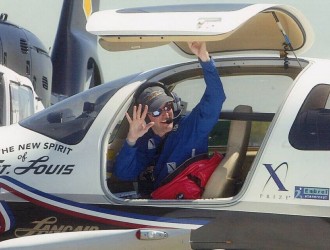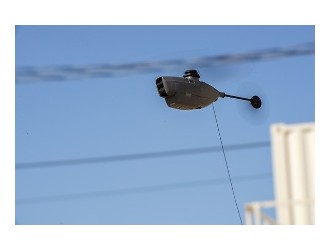
A U.S. Court of Appeals in Washington, D.C., recently ruled that the FAA cannot require unmanned aircraft system (UAS) hobbyists to register their drones under a December 2015 rule.
No registration means no information and no efficient way to track hobby drones that pose a danger to other aircraft or the public. Without an up-to-date registry, the only way to catch an operator who just buzzed by a police helicopter with a drone may be to hope to catch the operator with the drone in hand.
The decision came as a result of a lawsuit against the FAA brought on by insurance lawyer, hobby drone builder and member of the D.C. Area Drone User Group, John Taylor. Taylor argued the registration requirement for hobbyists violated the FAA Modernization and Reform Act of 2012.
The court agreed May 19, saying the act says the FAA “may not promulgate any rule or regulation regarding a model aircraft.” The 2015 Registration Rule is a “rule or regulation regarding a model aircraft,” Judge Brett Kavanaugh stated in the ruling for a three-judge panel of the court. “Statutory interpretation does not get much simpler. The Registration Rule is unlawful as applied to model aircraft.”
Are small UAS deemed model aircraft or aircraft? The December 2015 requirement mandated that hobby drones weighing between 0.55 pounds and 55 pounds (or 250 grams to 24.9 kilograms) register with the FAA. Part 107 of the Federal Aviation Regulations says commercial drones in that weight category are considered aircraft. Drone kits that hobbyists like Taylor build could weigh no more than 3 pounds.
A senior industry analyst for aerospace, defense and security with Sullivan & Frost, Michael Blades, said he agrees that a distinction should be made between hobby drones and commercial ones. In his opinion, the registry requirement was generally unsupported by data.
“The whole thing was kind of a knee-jerk reaction to thinking, ‘These people are going to be buying drones at Christmas time and they’re going to be running them into airplanes.’ And that just didn’t happen,” Blades said. “There was no method to the madness behind the 250-gram requirement … If it was for safety, they should have had some data behind it.”
He added that most hobby drone users are operating their airframes in fields wher there is no intent, and relatively little chance, of creating any sort of unwanted incident. As the FAA works to further create rules for commercial drone integration into the airspace, Blades argued, the hobbyists want nothing to do with that. Fighting the FAA now might be a better strategy than trying to fight them later.
But drone users like Taylor, and other operators that are flying in backyards and fields, are probably not the kind of users for whom the registry was meant. There is no requirement to register at point of sale, meaning the onus for registration is on the hobbyist. It is the opinion of Blades, and others, that those who with malicious intent probably would not register their drone anyway. The operator who flew a drone within five miles of an airport without any permissions, and then flew the drone away before a Washoe Country, Nevada, police helicopter could track it, would be an example of someone who might warrant the implementation of FAA guidelines.
Deputy Doug Russell, chief pilot for the Washoe County Sheriff’s Office helicopter unit in Reno, Nevada, has more experience interacting with hobby drones from his helicopter than he’d probably like. The court ruling has him more worried than he was before about drones flying dangerously close to his aircraft during operations.
“What I’m concerned about is you’re going to have all of those drones out there, that are considered hobbyist aircraft now, and nobody is going to be able to identify the operator,” Russell said. “There are so many [drones] out there, and I don’t know how the FAA is ever going to get a handle on it. At least the registration allowed us to understand the sheer number that we’re talking about. Without a registration, anybody can just go out and buy one and operate it without any knowledge of how to operate in and around manned aircraft and in the national airspace.”
The FAA’s ability to educate the general public about how to fly safely in airspace is one of the main arguments against the court ruling that the rotorcraft industry is spreading. Granted it did not have compelling power to educate hobbyists anyway (Russell said he would have liked to see the FAA require hobbyists take a compulsory online course about airspace safety with proof of completion). But taking hobbyists completely out of the FAA’s jurisdiction is removing that avenue altogether. This is a concern shared by Helicopter Assn. International (HAI), as well.
“Helicopters routinely operate at the same low altitudes as drones, and we in the helicopter industry are deeply concerned about our ability to fly safely in airspace wher pilots could encounter any unmanned aircraft, be it commercial or otherwise,” the trade group said in a prepared statement. “One valuable component of the FAA’s drone registration program is the opportunity to educate the general population about the hazards of careless drone operation, and we believe that the FAA’s drone registration program serves to protect everyone in the air and on land.”
Even if the FAA registry could not prevent hobbyists from conducting unsafe airspace operations, Russell said, it at least showed that hobby drones were going to be taken seriously by the government. FAA rules and guidelines, perhaps, would make hobbyists accountable for flying safely. These are sentiments not necessarily aimed at affiliated hobbyists like Taylor, who has an active fundraising campaign through the D.C. Area Drone User Group to support his legal activities. Rather, they are aimed for those who might not be aware that the national airspace system even exists — who might not realize how low helicopters can fly.
The FAA’s options could include accepting the ruling, asking for a re-hearing by a full panel of the Appeals Court’s 17 judges or asking Congress to change the law.
“We are carefully reviewing the U.S. Court of Appeals decision as it relates to drone registrations,” the agency said. “The FAA put registration and operational regulations in place to ensure that drones are operated in a way that is safe and does not pose security and privacy threats. We are in the process of considering our options and response to the decision.”
Russell and HAI are both pushing for a response.
“HAI strongly urges Congress to allow the FAA to do what the FAA does best, to provide safe and efficient use of our national airspace,” the association said.
“Without that education, [hobbyists] are not going to know that they are operating within the national airspace system in close proximity to manned aircraft,” Russell said. “I think that’s going to lead to some problems down the road.”





